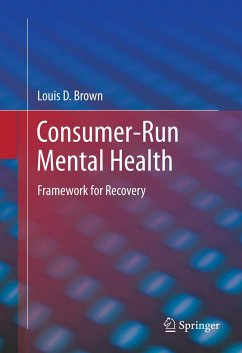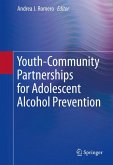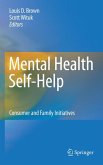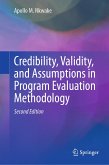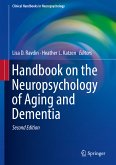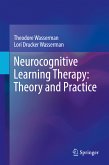Louis D. Brown
Conceived of as an empowering alternative to inpatient treatment and traditional community programs, mental health consumer-run organizations--CROs--offer consumers a hands-on stake in their own recovery. A growing evidence base suggests that CROs are a particularly effective form of self-help, with randomized trials demonstrating CRO participants experience improvements in personal empowerment, social integration, and well-being. Consumer-Run Mental Health explains their methods and analyzes their efficacy.
A robust theoretical framework synthesizes diverse perspectives to illuminate behavioral processes that contribute to recovery and the dynamics of CROs in creating environments that promote recovery. Data from the author's studies of CRO participation highlight consumer perceptions of the benefits of their involvement. An in-depth ethnographic study examines participant's lives inside and outside the organization. And in a set of remarkable narratives, consumers describe dealing with both mental illness and the tasks of running a non-profit organization, for a fuller understanding of the impact of CRO participation on their lives.
By emphasizing consumer roles within the organization, the book breaks down the mental health CRO experience into these vital topics:
· Person-environment interaction within CROs. · Developing empowering and socially supportive roles · Resource exchange, skill development, and identity transformation · Life history narratives: the lived experience of CRO participation. · How organizations influence role development. · The impact of role development onrecovery. · Implications for practice.
Opening up about rarely-addressed concepts of self-help, Consumer-Run Mental Health is a unique reference for researchers who study peer-run organizations as well as practitioners in community mental health settings who are involved in collaborating with or supporting CROs.
Dieser Download kann aus rechtlichen Gründen nur mit Rechnungsadresse in A, B, BG, CY, CZ, D, DK, EW, E, FIN, F, GR, HR, H, IRL, I, LT, L, LR, M, NL, PL, P, R, S, SLO, SK ausgeliefert werden.
"The aim of this book is to provide an introduction to CROs in mental health, review the scholarly evidence for their benefit and cost-effectiveness, and provide an insider's perspective on mental health and the process of recovery within these organizations by those who are consumers and members of them. The author identifies a wide audience, ranging from researchers of consumer-run organizations to students of psychiatry to mental health consumers. ... book ends with suggestions for research directions and includes a self-help questionnaire in the appendix." (Christopher J. Graver, Doody's Review Service, March, 2012)
"In Consumer-Run Mental Health: Framework for Recovery, Louis Brown provides a theoretical framework for consumer-run organizations (CROs) and a research model for studying consumer-driven organizations. Those who study CROs and mental health recovery will find the text to be thoughtful, well organized, and informative. Graduatestudents learning about psychopathology will gain a deeper and more informed understanding of mental illness and of the social impact of living with a chronic mental health condition." (Lisa Fitzgibbons, PsycCRITIQUES, Vol. 57 (43), October, 2012)

